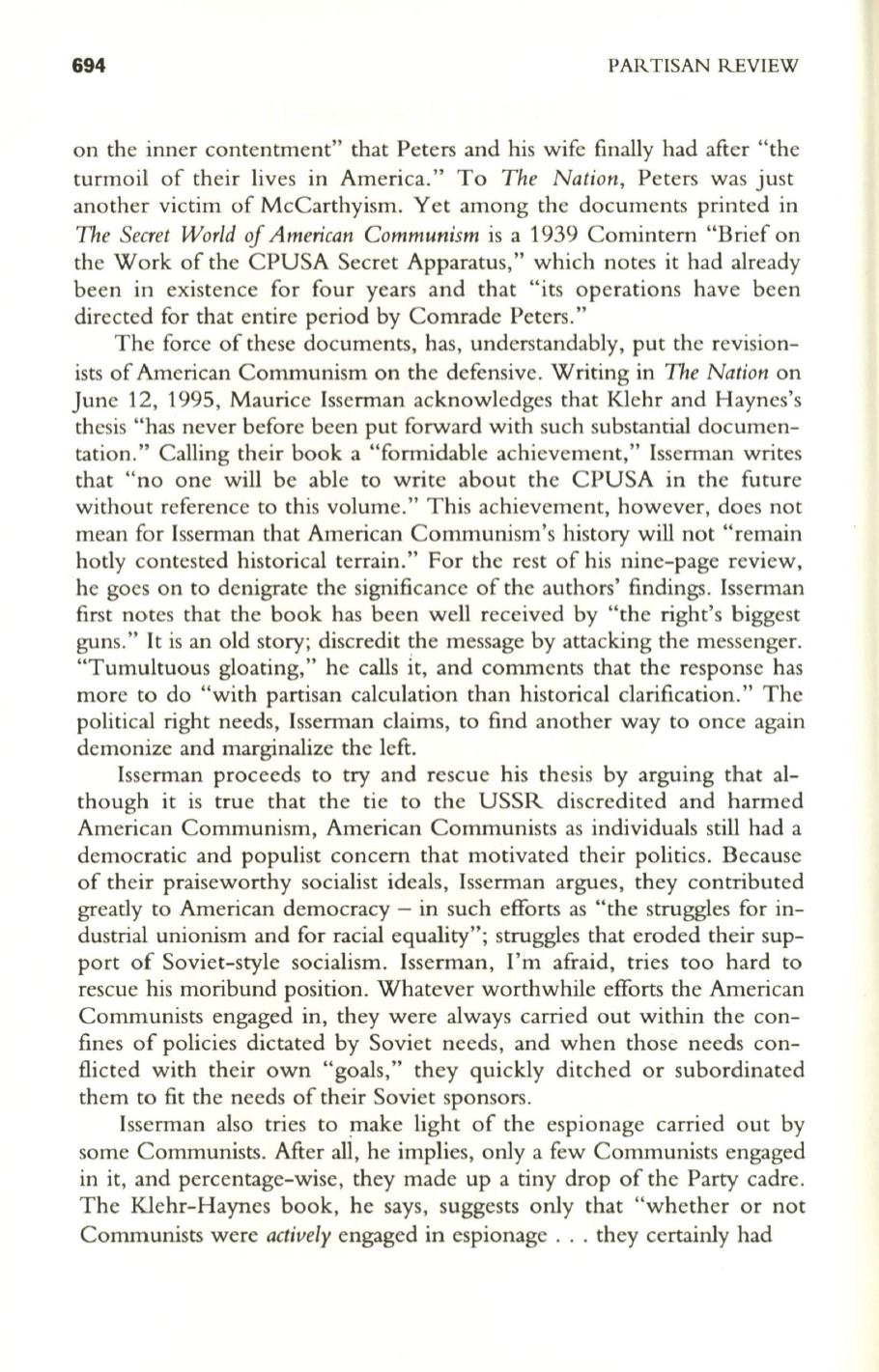
694
PARTISAN REVIEW
on the inner contentment" that Peters and his wife finally had after "the
turmoil of their lives in America." To
The Nation,
Peters was just
another victim of McCarthyism. Yet among the documents printed in
The Secret World of American Communism
is a 1939 Comintern "Brief on
the Work of the CPUSA Secret Apparatus," which notes it had already
been in existence for four years and that "its operations have been
directed for that entire period by Comrade Peters."
The force of these documents, has, understandably, put the revision–
ists of American Communism on the defensive. Writing in
The Nation
on
June 12, 1995, Maurice Isserman acknowledges that Klehr and Haynes's
thesis "has never before been put forward with such substantial documen–
tation." Calling their book a "formidable achievement," Isserman writes
that "no one will be able to write about the CPUSA in the future
without reference to this volume." This achievement, however, does not
mean for Isserman that American Communism's history will not "remain
hotly contested historical terrain." For the rest of his nine-page review,
he goes on to denigrate the significance of the authors' findings . Isserman
first notes that the book has been well received by "the right's biggest
guns."
It
is an old story; discredit the message by attacking the messenger.
"Tumultuous gloating," he calls It, and comments that the response has
more to do "with partisan calculation than historical clarification." The
political right needs, Isserman claims, to find another way to once again
demonize and marginalize the left.
Isserman proceeds to try and rescue his thesis by arguing that al–
though it is true that the tie to the USSR discredited and harmed
American Communism, American Communists as individuals still had a
democratic and populist concern that motivated their politics. Because
of their praiseworthy socialist ideals, Isserman argues, they contributed
greatly to American democracy - in such efforts as "the struggles for in–
dustrial unionism and for racial equality"; struggles that eroded their sup–
port of Soviet-style socialism. Isserman, I'm afraid, tries too hard to
rescue his moribund position. Whatever worthwhile efforts the American
Communists engaged in, they were always carried out within the con–
fines of policies dictated by Soviet needs, and when those needs con–
flicted with their own "goals," they quickly ditched or subordinated
them to fit the needs of their Soviet sponsors.
Isserman also tries to make light of the espionage carried out by
some Communists. Mter all, he implies, only a few Communists engaged
in it, and percentage-wise, they made up a tiny drop of the Party cadre.
The Klehr-Haynes book, he says, suggests only that "whether or not
Communists were
actively
engaged in espionage . . . they certainly had


